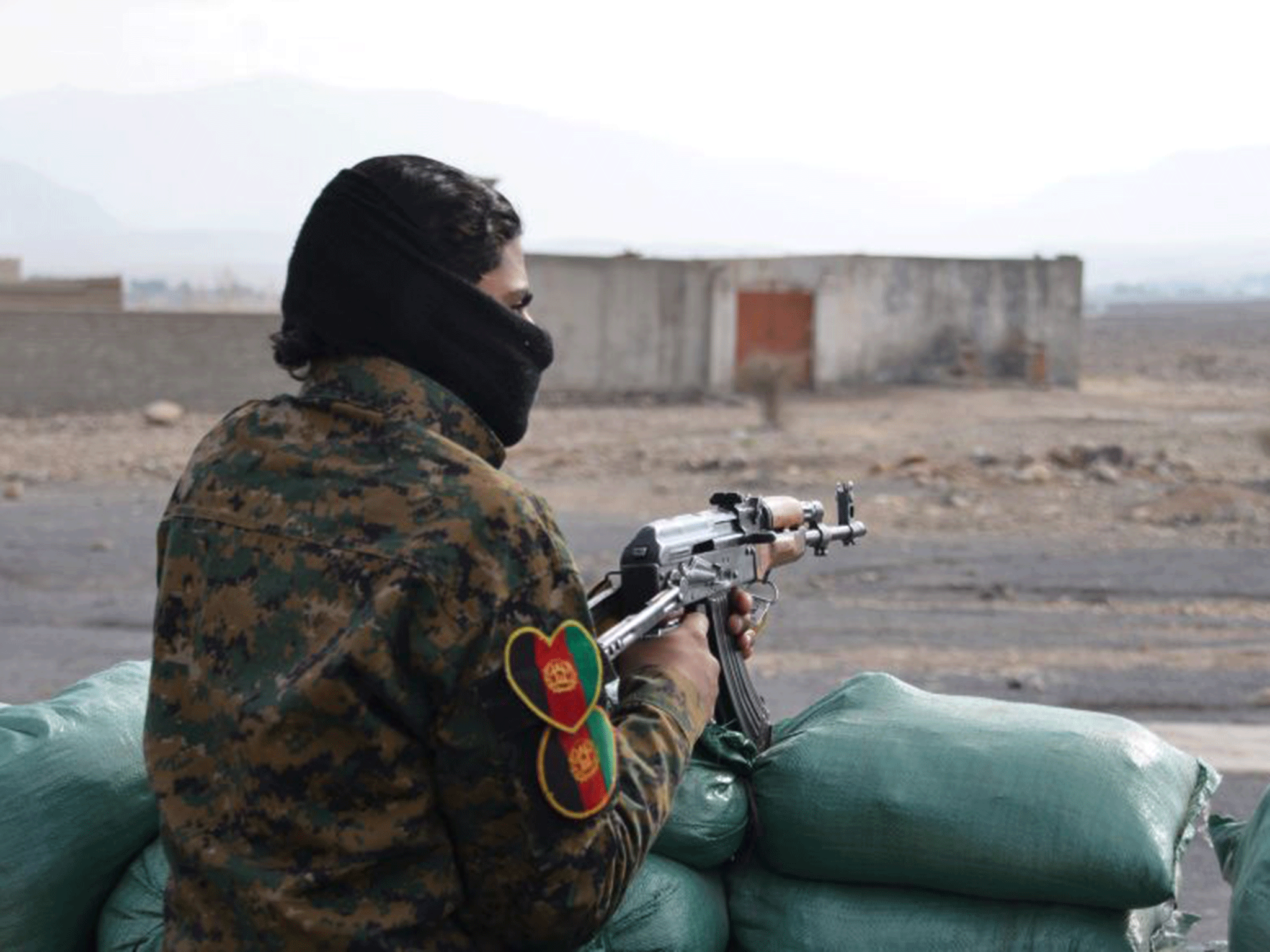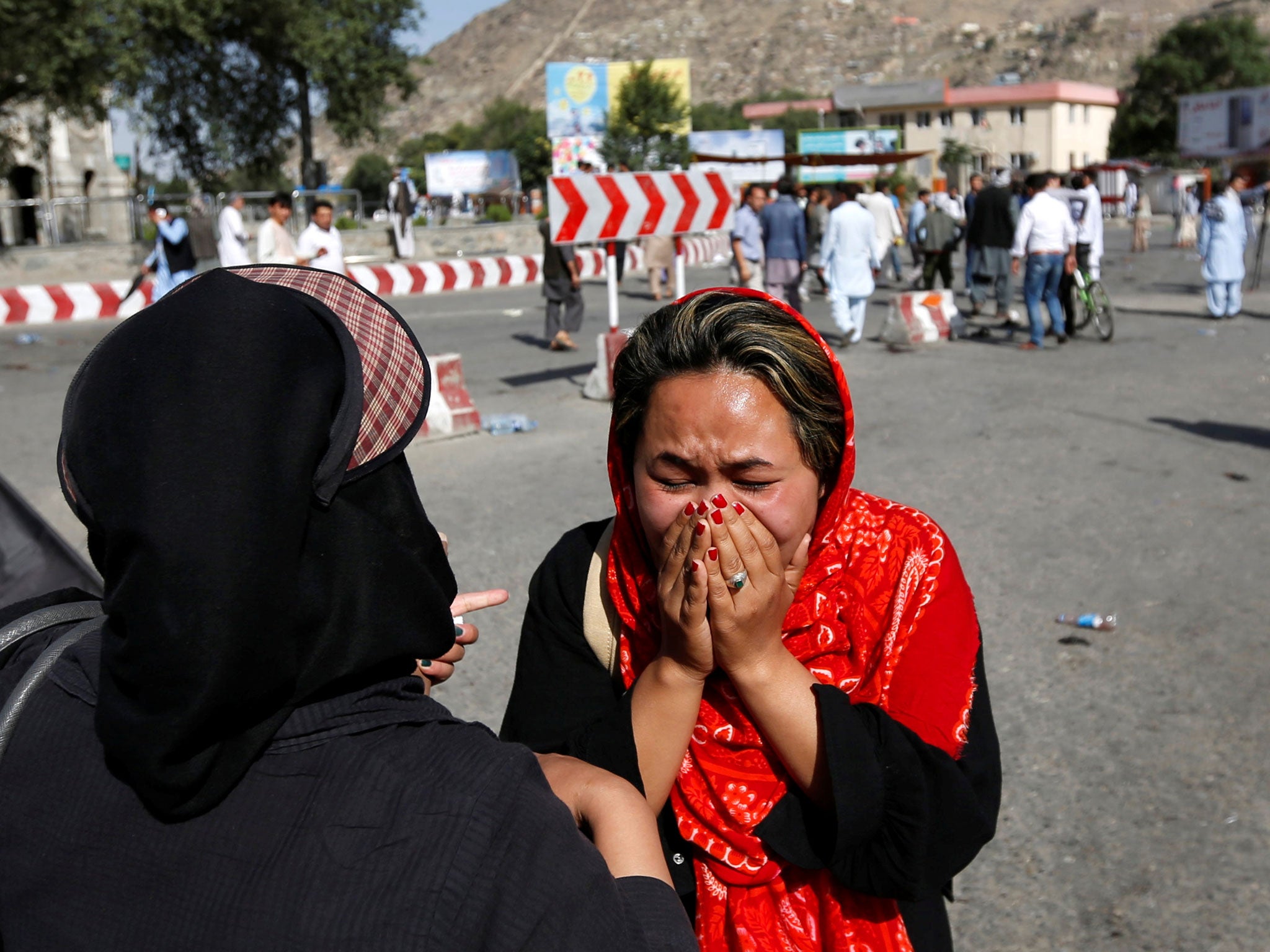Former Isis fighter describes watching militants rape girls as young as 10 and commit 'crimes against humanity'
'They claim infidels are plundering our beloved country but it is they who are destroying our lives'

Your support helps us to tell the story
From reproductive rights to climate change to Big Tech, The Independent is on the ground when the story is developing. Whether it's investigating the financials of Elon Musk's pro-Trump PAC or producing our latest documentary, 'The A Word', which shines a light on the American women fighting for reproductive rights, we know how important it is to parse out the facts from the messaging.
At such a critical moment in US history, we need reporters on the ground. Your donation allows us to keep sending journalists to speak to both sides of the story.
The Independent is trusted by Americans across the entire political spectrum. And unlike many other quality news outlets, we choose not to lock Americans out of our reporting and analysis with paywalls. We believe quality journalism should be available to everyone, paid for by those who can afford it.
Your support makes all the difference.A former Isis fighter has described seeing militants rape girls as young as 10 and commit “crimes against humanity”.
The man, who gave his name as Lahor Shah, claimed to have been a member of Isis’ Khorasan Province, which operates in Afghanistan and Pakistan.
Shah told Dubai-based al-Aan TV he was drawn in by the group’s propaganda and believed it to be a “moderate Islamic movement serving the interests of Islam and the Muslims”.
“But I learnt the truth about them when I was in their midst and in their camps,” he added, according to a translation by the Middle East Media Research Institute (Memri).
“I witnessed the worst crimes against humanity, perpetrated against Afghans, like the kidnapping and rape of girls aged no more than 10 or 12.”
Shah said he took part in unspecified military operations after joining Isis in early 2014 but defected after realising jihadists were using Islam “in the service of their interests”.
The former militant, who has returned to live with his family, accused Isis of robbing Afghan farmers and imposing “unbearable taxes” on traders.
“They are not what they pretend to be and their actions are completely against Islam,” he added, calling on others not to join their ranks.
“They are always claiming that the infidels are plundering our beloved country but it is they who are destroying our country and our lives.”

Shah’s account could not be independently verified but matched analysis by counter-terror authorities who have documented Isis recruiting from former Taliban fighters.
He said he joined Isis through a “friend” called Hafiz Saeed who was with the Taliban for 18 years before switching his allegiance to Abu Bakr al-Baghdadi.
Hafiz Saeed Khan, who was killed in an American drone strike in July, was appointed the “emir” of Khorasan Province when Isis formally announced its creation in January last year.
He fought with the Afghan Taliban before becoming a commander with the Pakistani Taliban (Tehrik-i-Taliban) and then defecting with other leaders to join Isis in 2014.
The so-called Islamic State has been expanding by accepting pledges of allegiance from Islamist groups across the Middle East, Asia and Africa, creating a network of factions under varying levels of control from its strongholds in Syria.
Khorasan Province has claimed responsibility for a string of assaults on government buildings, "invader" forces and the security services, as well as deadly terror attacks including a bombing targeting minority protesters in Kabul that killed more than 80 people in July.
Its militants are also fighting the Taliban for control of the local drug trade in Afghanistan’s Nangarhar province and have used child soldiers to execute the Islamist group’s alleged “spies” in gory propaganda videos.
The two groups, along with al-Qaeda, are locked in a battle for jihadist supremacy in the country’s ongoing conflict.
Isis has advertised its atrocities in images and videos spread around the world, including the kidnapping of Yazidi women as sex slaves in Iraq and stoning of women accused of adultery across its territories.
The Pakistani armed forces are mounting a wide-ranging offensive against Isis, the Taliban and al-Qaeda, while the US is launching drone strikes in the region.
At least 450 British troops and special forces are currently in Afghanistan, with the Defence Secretary recently announcing the deployment of another 50 personnel in 2017.
Michael Fallon said the Government is aiming to make the country “more stable and the streets of Britain safer” with pledged funding of £70 million per year for the Afghan security forces until 2020.
Next month will mark the 15 year anniversary of the war in Afghanistan, which began when the US invaded the country with the aim of dismantling al-Qaeda and dislodging the Taliban following the 9/11 attacks.
Join our commenting forum
Join thought-provoking conversations, follow other Independent readers and see their replies
Comments